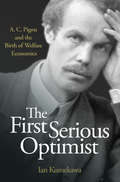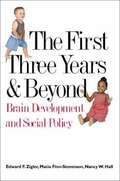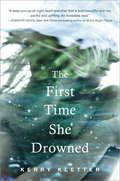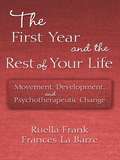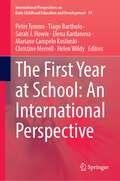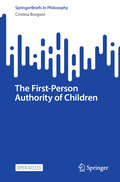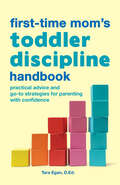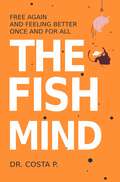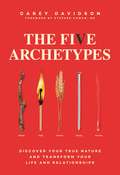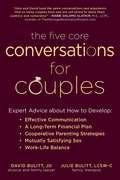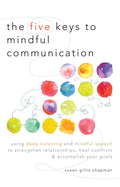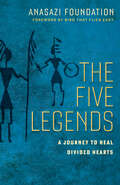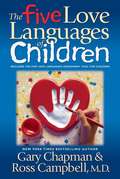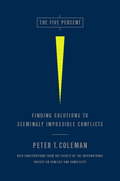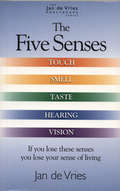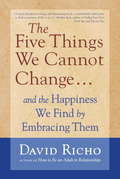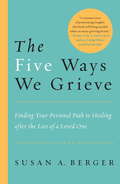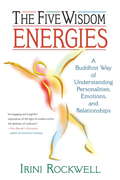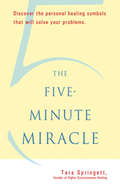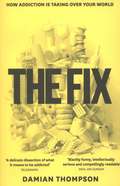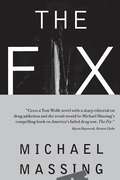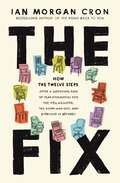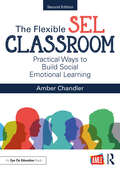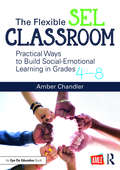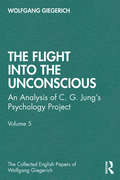- Table View
- List View
The First Serious Optimist: A. C. Pigou and the Birth of Welfare Economics
by Ian KumekawaA groundbreaking intellectual biography of one of the twentieth century's most influential economistsThe First Serious Optimist is an intellectual biography of the British economist A. C. Pigou (1877–1959), a founder of welfare economics and one of the twentieth century's most important and original thinkers. Though long overshadowed by his intellectual rival John Maynard Keynes, Pigou was instrumental in focusing economics on the public welfare. And his reputation is experiencing a renaissance today, in part because his idea of "externalities" or spillover costs is the basis of carbon taxes. Drawing from a wealth of archival sources, Ian Kumekawa tells how Pigou reshaped the way the public thinks about the economic role of government and the way economists think about the public good.Setting Pigou's ideas in their personal, political, social, and ethical context, the book follows him as he evolved from a liberal Edwardian bon vivant to a reserved but reform-minded economics professor. With World War I, Pigou entered government service, but soon became disenchanted with the state he encountered. As his ideas were challenged in the interwar period, he found himself increasingly alienated from his profession. But with the rise of the Labour Party following World War II, the elderly Pigou re-embraced a mind-set that inspired a colleague to describe him as "the first serious optimist."The story not just of Pigou but also of twentieth-century economics, The First Serious Optimist explores the biographical and historical origins of some of the most important economic ideas of the past hundred years. It is a timely reminder of the ethical roots of economics and the discipline's long history as an active intermediary between the state and the market.
The First Three Years and Beyond: Brain Development and Social Policy
by Edward F. Zigler Matia Finn-Stevenson Nancy W. HallDrawing on the latest research from the social sciences and studies on the brain to answer questions and exploring what they mean for social policy and child and family development, this book offers recommendations for child care and development based on current brain research and its implications. A must-read for parents and policy makers alike.
The First Time She Drowned
by Kerry KletterThe beautiful struggle of a girl desperate for the one relationship that has caused her the most pain. Cassie O'Malley has spent the past two and a half years in a mental institution--dumped there by her mother, against her will. Now, at 18, Cassie emancipates herself, determined to start over. She attends college, forms new friendships, and even attempts to start fresh with her mother. But before long, their unhealthy relationship threatens to pull Cassie under once again. As Cassie struggles to reclaim her life, childhood memories persist and confuse, and Cassie must consider whose version of history is real, and more important, whose life she must save. A bold, literary story about the fragile complexities of mothers and daughters and learning to love oneself, The First Time She Drowned reminds us that we must dive deep into our pasts if we are ever to move forward.
The First Year and the Rest of Your Life: Movement, Development, and Psychotherapeutic Change
by Ruella Frank Frances La BarreThe movement repertoire that develops in the first year of life is a language in itself and conveys desires, intentions, and emotions. This early life in motion serves as the roots of ongoing nonverbal interaction and later verbal expression – in short, this language remains a key element in communication throughout life. In their path-breaking book, gestalt therapist Ruella Frank and psychoanalyst Frances La Barre give readers the tools to see and understand the logic of this nonverbal realm. They demonstrate how observations of fundamental movement interactions between babies and parents cue us to coconstructed experiences that underlie psychological development. Numerous clinical vignettes and detailed case studies show how movement observation opens the door to understanding problems that develop in infancy and also those that appear in the continuing nonverbal dimension of adult communication. Their user-friendly nonverbal lexicon – foundational movement analysis – enhances perception of emerging interactive patterns of parents and their babies, couples, and individual adults within psychotherapy. Clinicians in any setting will find this book to be a masterful application of infant research and movement theory that significantly augments clinical acumen and promotes greater understanding of the nonverbal basis of all relationships.
The First Year at School: An International Perspective (International Perspectives on Early Childhood Education and Development #39)
by Sarah J. Howie Peter Tymms Tiago Bartholo Elena Kardanova Mariane Campelo Koslinski Christine Merrell Helen WildyThis book explores an under-researched but vital part of education: the first year at primary/elementary school. The work shows that children’s progress varies enormously from school to school, class to class and child to child. This variation is important because the more progress that children make in that first year of school, the higher their academic attainment at the end of compulsory schooling. The iPIPS (international Performance Indicators in Primary Schools) project, upon which this book is based, has been able to provide deeper insights into some of the key issues within and across different contexts whilst highlighting new and some ongoing issues. Despite all the work there remain unanswered or new puzzling issues which are also explored. We need to know how to improve the education at that stage and, more broadly, we need greater clarity about when children should be taught to read and be introduced to formal arithmetic, in other words, when they should start school. We also need to be clearer about whether, when and how young children should be assessed. The book will suggest some answers but it will raise important questions and dilemmas for which we do not, as yet, have answers.
The First-Person Authority of Children (SpringerBriefs in Philosophy)
by Cristina BorgoniThis is an open access book that addresses how we treat others and, in particular, infants and children, with first-person authority. We respond to people’s first-person authority when we give our interlocutor’s communication of their mental states more significance in establishing their thoughts, desires, and feelings than if another person were to report those mental states for them. But what happens when our interlocutors are infants and children? Increasingly, practices of responsive childrearing ascribe first-person authority to very young children. Despite this tendency, philosophy seems to be one step behind. The accepted view is one in which first-person authority has its locus in linguistic expressions of one’s self-knowledge. This is an over-intellectualized conception, however, that consequently tends to exclude children. By combining philosophical resources with empirical findings about the onset of human communication, play, and our nature as social beings, this text advances a non-intellectualized, anti-individualist, and non-adult-centered view of first-person authority. This is a view that both accommodates our daily experiences and provides material for advancing the philosophical debate around the phenomenon in an enriched and more inclusive way.
The First-Time Mom's Toddler Discipline Handbook: Practical Advice and Go-To Strategies for Parenting with Confidence
by Tara Egan D.Ed.Build a calm and happy relationship with your toddler Raising a toddler who has big emotions and a limited vocabulary is no easy feat. Especially when it's your first toddler, the two of you are learning and growing together—every day brings new challenges and triumphs. This first-time mom's handbook is the ultimate resource for being a calm, positive parent and encouraging good behavior from your toddler. Discover easy exercises and real-life stories to fill your parenting toolbox with useful techniques for those challenging toddler moments. The First-Time Mom's Toddler Discipline Handbook features: Advice for every scenario—Find quick tips for everything from bedtime routines to time-outs and successful playdates. Stage-by-stage development—Learn how to introduce, adjust, or phase out strategies throughout the toddler years based on your child's development. A positive parenting approach—Practice using these techniques firmly and effectively, in the ways that work best for your family. Comfort and inspiration—Consult this book whenever you need advice or just some positive reassurance that you and your toddler are doing the best you can. Raise a better-behaved toddler with this supportive guide to handling tough times.
The Fish Mind : Free again and feeling better once and for all
by Dr P. CostaThe psyche in today’s world is like reactions that fish have in their own environment. The Fish Mind includes five key elements that astonishingly match the way fish live. To tell the truth, this is a concept that pinpoints the five problems that ruin modern life. This book addresses these issues that often poison our minds. It also invites you to participate in a deep introspection to understand our modern ways of living and functioning. It gives you tips and tools to tackle these issues, or—at least—to prevent them from totally controlling your lives and influencing you. In a nutshell, to become a fish swimming in a calm and clear lake once again.
The Five Archetypes: Discover Your True Nature and Transform Your Life and Relationships
by Carey DavidsonDiscover the personality archetypes within you and improve your life and relationships with a new self-guided system of personal transformation.In Traditional Chinese Medicine (TCM) philosophy, the elements Wood, Fire, Earth, Metal, and Water are the foundation of how nature grows and evolves. They are believed to help us understand everything from illness and healing to the fundamental processes of child development—and they continue to inform Chinese medicine practice today. But as Ayurvedic nutritionist, reiki master, and Tournesol founder Carey Davidson demonstrates in this book, each of the five elements can also be seen as a personality archetype—and inside all of us is a unique blend of these archetypes that serves as a window into living a more fulfilling life on every level. In The Five Archetypes, Davidson explains that by knowing the personality traits associated with each type and using what she calls the Five Archetypes method, you can actually start to predict your behavioral patterns—not only with yourself but also with your friends, your romantic partner, your children, and even your colleagues. By practicing this method, you will also: -Learn how to exercise more control over behaviors that thwart your potential -Hone your self-awareness and self-regulation skills in the face of day-to-day stress -And understand what really makes people tick, so that you spend less time in stagnant relationships and more time in gratifying ones Through her study of the elements and the observations she&’s made in her work with individuals, couples, companies, parents, kids, and educators, Davidson has created a simplified and practical guide to harnessing the strengths of our five archetypes. Complete with an assessment designed to help you discover your primary, secondary, and lowest types, The Five Archetypes will not only teach you more about yourself and others but also transform your relationships and set you on the path to personal and interpersonal harmony.
The Five Core Conversations for Couples: Expert Advice about How to Develop Effective Communication, a Long-Term Financial Plan, Cooperative Parenting Strategies, Mutually Satisfying Sex, and Work-Life Balance
by David Bulitt Julie BulittA Top Divorce Lawyer and a Family Therapist Show You How to Really Talk—for Better or for Worse Married for 33 years, David, a divorce lawyer, and Julie, a family therapist, have both been witness to families struggling with life&’s most difficult challenges. At the same time, they have weathered their own challenges at home: raising four daughters, two biological and two adopted, and dealing with one child&’s mental health and behavioral issues. What they&’ve learned about saving a marriage or knowing when to call it quits, when to turn to professionals or when to try tough love, could fill a book—and it does. The Five Core Conversations for Couples tackles every corner of relationships with the wisdom, knowledge, and best advice culled from David and Julie&’s unique personal and professional experiences, organized topically into the five core reasons that people come to their offices. Topics include: DisabilityAbuseSerious illnessEstrangementAnd much, much more Take a look inside the hearts and minds of two marriage professionals to gain a fresh perspective into your own relationships and to have valuable and more frequent conversations with those you love.
The Five Keys to Mindful Communication: Using Deep Listening and Mindful Speech to Strengthen Relationships, Heal Confli cts, and Accomplish Your Goals
by Susan Gillis ChapmanGood communiation is essential to any healthy relationship, whether it's between spouses, family members, friends, or co-workers. In this book Susan Chapman, a marriage and family therapist and a longtime meditation teacher, explains how mindfulness can be brought to bear in the way we speak and listen to each other so that we can strengthen our connections and better accomplish our goals. Drawing on Buddhist principles and on her training as a psychotherapist, Chapman explains how the practice of mindfulness--learning to become fully present in the moment--makes it possible for us to listen more deeply to others and to develop greater clarity and confidence about how to respond. Chapman highlights five key elements of mindful communication: silence, mirroring, encouraging, discerning, and responding, and she dedicates a chapter of the book to each. Other topics include identifying your communication patterns and habits; uncovering the hidden fears that often sabotage communication; staying open in the midst of difficult conversations so that we can respond wisely and skillfully; and learning how mindful communication can help us to become more truthful, compassionate, and flexible in our relationships.
The Five Legends: A Journey to Heal Divided Hearts
by Anasazi FoundationDrawing on 30 years of helping families in-crisis, this profound fable by the Anasazi Foundation illustrates the anguish of conflict and shows how we can end war within ourselves, within families, and even between nations.The Five Legends tells the story of two estranged brothers, leaders of their people, who find themselves on an unexpected journey. Struggling against each other, they stumble and fall into a great and terrible canyon. Trapped, the two brothers are rescued by an old man—"the last of a people"—who offers to guide them out of the canyon if they agree to learn the five legends of peace. The brothers agree and begin a journey that may not only save themselves, but also their people.The brothers learn that to heal any conflict we must first look within ourselves. As this fable beautifully puts it, "War does not begin or end with armies and leaders. In truth, war begins and ends within each of us—within our hearts. When we choose to war with others, we turn our hearts away from them and blind ourselves to their light. …To have a heart at war is to invite war into your life." The path to peace begins when we stop thinking about "me" and start thinking about "WE."This poetic and moving allegory is written for all ages. Its message is both timeless and desperately needed for our own time
The Five Love Languages of Children
by Gary Chapman Ross CampbellDoes your child speak a different language? Sometimes they wager for your attention, and other times they ignore you completely. Sometimes they are filled with gratitude and affection, and other times they seem totally indifferent. Attitude. Behavior. Development. Everything depends on the love relationship between you and your child. When children feel loved, they do their best. But how can you make sure your child feels loved? Since 1992, Dr. Gary Chapman's best-selling book The Five Love Languages has helped more than 300,000 couples develop stronger, more fulfilling relationships by teaching them to speak each others love language. Each child, too, expresses and receives love through one of five different communication styles. And your love language may be totally different from that of your child. While you are doing all you can to show your child love, he may be hearing it as something completely opposite. Discover your child's primary language and learn what you can do to effectively convey unconditional feelings of respect, affection, and commitment that will resonate in your child's emotions and behavior.
The Five Percent: Finding Solutions to Seemingly Impossible Conflicts
by Peter ColemanOne in every twenty difficult conflicts ends up grinding to a halt. That's fully 5 percent of not just the diplomatic and political clashes we read about in the newspaper, but disputations and arguments from our everyday lives as well. Once we get pulled into these self-perpetuating conflicts it is nearly impossible to escape. The 5 percent rule us. So what can we do when we find ourselves ensnared? According to Dr. Peter T. Coleman, the solution is in seeing our conflict anew. Applying lessons from complexity theory to examples from both American domestic politics and international diplomacy--from abortion debates to the enmity between Israelis and Palestinians--Coleman provides innovative new strategies for dealing with intractable disputes. A timely, paradigm-shifting look at conflict, The Five Percent is an invaluable guide to preventing even the most fractious negotiations from foundering.
The Five Senses: Touch, Smell, Taste, Hearing And Vision (Jan De Vries Healthcare Ser.)
by Jan de VriesBest-selling author and world-renowned naturopath Jan de Vries has become increasingly aware of the damage that today's environment has had on the five senses of touch, smell, taste, hearing and vision. Man's immune system is under constant attack by viruses, allergies, bacteria, pollution, food, water and air. As Jan de Vries says in his introduction, 'If you lose your senses you lose your sense of living'; this book will help you to live again.
The Five Things We Cannot Change: And the Happiness We Find by Embracing Them
by David RichoWhy is it that despite our best efforts, many of us remain fundamentally unhappy and unfulfilled in our lives? In this provocative and inspiring book, David Richo distills thirty years of experience as a therapist to explain the underlying roots of unhappiness--and the surprising secret to finding freedom and fulfillment. There are certain facts of life that we cannot change--the unavoidable "givens" of human existence: (1) everything changes and ends, (2) things do not always go according to plan, (3) life is not always fair, (4) pain is a part of life, and (5) people are not loving and loyal all the time. Richo shows us that by dropping our deep-seated resistance to these givens, we can find liberation and discover the true richness that life has to offer. Blending Western psychology and Eastern spirituality, including practical exercises, Richo shows us how to open up to our lives--including to what is frightening, painful, or disappointing--and discover our greatest gifts.
The Five Ways We Grieve: Finding Your Personal Path to Healing after the Loss of a Loved One
by Susan A. BergerIn this new approach to understanding the impact of grief, Susan A. Berger goes beyond the commonly held theories of stages of grief with a new typology for self-awareness and personal growth. She offers practical advice for healing from a major loss in this presentation of five basic ways, or types, of grieving. These five types describe how different people respond to a major loss. The types are: * Nomads, who have not yet resolved their grief and don't often understand how their loss has affected their lives * Memorialists, who are committed to preserving the memory of their loved ones by creating concrete memorials and rituals to honor them * Normalizers, who are committed to re-creating a sense of family and community * Activists, who focus on helping other people who are dealing with the same disease or issues that caused their loved one's death * Seekers, who adopt religious, philosophical, or spiritual beliefs to create meaning in their lives Drawing on research results and anecdotes from working with the bereaved over the past ten years, Berger examines how a person's worldview is affected after a major loss. According to her findings, people experience significant changes in their sense of mortality, their values and priorities, their perception of and orientation toward time, and the manner in which they "fit" in society. The five types of grieving, she finds, reflect the choices people make in their efforts to adapt to dramatic life changes. By identifying with one of the types, readers who have suffered a recent loss--or whose lives have been shaped by an early loss--find ways of understanding the impact of the loss and of living more fully.
The Five Wisdom Energies: A Buddhust Way of Understanding Personalities, Emotions, and Relationships
by Irini RockwellThis book invites us to celebrate our strengths and work with our weaknesses by learning to identify and utilize five basic personal styles or energies. Written in a playful and accessible way, this is the first general-audience book on a Tibetan Buddhist system known as "the five buddha families"--an insightful way of understanding human behavior and promoting personal growth. Each of the five wisdom energies is associated with particular ways of perceiving and interacting with the world and also with particular colors, elements, senses, seasons, and times of day. With easy, fun, and engaging exercises and stories, Irini Rockwell shows us how to identify which energies are active in our lives, and how we can work with them in any situation to improve self-awareness, communication, and creative expression. According to the Tibetan Buddhist tradition, each of us has one or two dominant energies, but these can shift and change over time, and we can manifest different energies in different areas of our lives. Each of the five energies has its unique wisdom, but also its neurotic tendencies. By learning to recognize which energies we possess--and which are present in those around us--we can learn to relax and appreciate our natural traits and those of others, and we can move away from our neuroses toward the wisdom-aspects of our character.
The Five-Minute Miracle
by Tara SpringettThe basics of The Five-Minute Miracle came to Tara Springett, a psychotherapist, in meditation one day. The system is a pleasurable self-help method that is designed to overcome all sorts of psychological problems, as well as easing chronic pain and tiredness. The method only takes five minutes each day and is so simple that it can be used by anyone, anywhere, even by children. A synthesis of Tibetan Buddhist principles and humanistic psychology, the core of the practice is to make contact with our Higher Consciousness (in whatever form we perceive it) and receive a healing symbol to overcome our problems. This symbol will be visualized (or sensed) in our heart, radiating loving light to ourselves and to everyone who is involved in the problem. It's a system that can be used over and over again -- for a new problem, ask for a new symbol. This system, which the author calls Higher Consciousness Healing, has brought extremely impressive and reliable results -- within days or a few weeks of beginning the practice -- to hundreds of individuals and families. Now everyone can learn and practice these principles through this extraordinary and miraculous book.
The Fix
by Damian ThompsonIn The Fix, Damian Thompson takes a controversial position on addiction, positioning it not as disease but as choice. A recovering alcoholic and journalist, Thompson lays out a brilliant cultural analysis of contemporary addictions and explains how capitalism and modern society drive them. Calling himself a "12-step heretic," Thompson says that the hell of addiction is taking over our modern lives. Indeed, aside from illegal drugs, painkillers, and alcohol, addictions to web-connected devices, video games, technology, television, sex, and food are have become ubiquitous. Thompson argues that attachments to family and work have been replaced by addictive behavior. Simultaneously intellectually serious and charming through the bleak prognosis, The Fix offers a glimmer of hope for the dark future it predicts.
The Fix
by Michael MassingMassing confronts the failure of the "war on drugs" and documents the much greater potential for reclaiming drug addicts that can be had by treatment and support rather than criminalization, and at a lower cost than building ever more prisons and militarizing drug source countries in Latin America.
The Fix: How the Twelve Steps Offer a Surprising Path of Transformation for the Well-Adjusted, the Down-and-Out, and Everyone In Between
by Ian Morgan CronDid you know that anyone--addicts or non-addicts--can benefit from working the Twelve Steps and find the freedom, joy, and intimacy with God that their hearts long for?We all suffer from a sense of spiritual homelessness--a feeling that we're not fully at home in the world. To cope with our painful feelings and life traumas, we search for quick "fixes" that eventually become habitual, self-destructive behaviors that ultimately create more problems than they solve.As a person in recovery from drug and alcohol addiction, Ian Cron is no stranger to these destructive habits. It wasn't until he embraced the Twelve Steps that he found true freedom. He knows from personal experience that Twelve Step recovery is more than just a life-saving strategy for guiding substance users into sobriety. Everybody is addicted to something to numb the discomfort of living in a messed-up world, he says, but the good news is that if you committedly "work the steps," you will eventually have a vital spiritual awakening that will give you an entirely new and radically beautiful orientation toward the life God has for you.If you long for sustainable healing and joy amid life's messiness, The Fix invites you to:Journey step-by-step through a spiritual curriculum that has helped millions overcome trauma, pain, and brokenness for over eight decadesUnderstand how the Twelve Steps can be a transformative tool not only for people with chemical or behavioral addictions but for anyone who wants to move beyond self-help to a spiritual awakeningCatch yourself in the act of self-sabotaging behaviors and understand how each day is a new opportunity to trade in self-willed reformation for grace-powered transformation "My original subtitle for this book--Twelve Steps to Unscrewing Your Screwed-Up Life--was a little over the top," Ian comments. "But anyone who has ever fallen for a quick fix (like drugs, alcohol, porn, overeating, work, religion, people-pleasing, and more) knows firsthand how our self-prescribed treatment plans derail us. They might not be as visible as empty bottles stashed inside a desk drawer, but they are just as life-complicating and soul-crushing."With his characteristic wit and transparent self-disclosure, Ian guides us in learning how to work each of the Twelve Steps so we will finally be given a "new pair of glasses" through which we will be able to see ourselves, others, and the world in a startlingly new way--and ultimately take hold of the freedom God has been waiting to give us all along.
The Flexible SEL Classroom: Practical Ways to Build Social Emotional Learning
by Amber ChandlerSocial emotional learning is more than just helping students be social. In this co-publication from Routledge and AMLE, Amber Chandler shows how middle and high school educators can be intentional about seeing their students for who they are, growing relationships, and building community. Grounded in classroom experience, Chandler's practical strategies can be adapted to suit different needs, so you can create a Flexible Classroom and reach all learners. Topics include encouraging academic risk-taking without fear of failure, helping students self-manage, teaching self-awareness, modeling responsible decision-making and empathy, building relationship skills, and emboldening students to become more socially aware. This updated second edition features new chapters on running Restorative Circles and focusing on resilience instead of deficit analysis. There is also a special section with post-pandemic takeaways, as we learn new ways to help students thrive.
The Flexible SEL Classroom: Practical Ways to Build Social Emotional Learning in Grades 4–8
by Amber ChandlerHelp middle school students tackle daily challenges both in and out of the classroom. In this new co-publication from Eye On Education and AMLE, author Amber Chandler offers practical strategies for incorporating social emotional learning into your instruction so students can learn to successfully manage their emotions, set goals, build relationships, and make good decisions. Grounded in classroom experience, her advice can be adapted to suit different needs, so you can create a Flexible Classroom and reach all learners. Topics include: Encouraging academic risk-taking without causing stress or fear of failure; Helping students to self-manage through technology and other tools; Teaching self-awareness through solution statements, metacognition, and effective communication; Modeling responsible decision-making and empathy to create a more tolerant classroom environment; Building relationship skills and encouraging students to be Upstanders; and Emboldening students to become more socially aware and cognizant of bias. Bonus: Downloadable versions of some of the handouts in this book are available on the Routledge website at www.routledge.com/9781138302563, so you can print and distribute them for immediate classroom use.
The Flight into The Unconscious: An Analysis of C. G. Jungʼs Psychology Project, Volume 5 (The Collected English Papers of Wolfgang Giegerich)
by Wolfgang GiegerichPsychological analysis usually sets its sights upon the patient or upon cultural phenomena such as myths, literature, or works of art. The essays in this volume, by contrast, have another addressee, another subject matter: psychology itself. Deeply informed by Jung’s insight regarding the discipline’s lack of an objective vantage point outside and beyond the psyche, their Jungian author again and again turns Jung’s contribution to psychology around upon itself in the spirit of an immanent critique. Cutting to the quick, the question is put: in its constitution as psychology is Jungian psychology up to the level of what its insight into psychology’s lack of an Archimedean point would require? Are the interpretations it gives of its various subject matters—alchemy, religion, the unconscious and the rest-matched by its interpretation of itself? Has its meeting itself in them had consequences for itself, consequences in terms of the fathoming of its own truth? Or clinging to the standpoint of empirical observer, did it ultimately demur with regards to the question of their truth and its own - this despite Jung’s having characterized his work as an opus divinum? Topics include Jung’s psychology project as a response to the condition of the world, the "smuggling" inherent in the logic of "the unconscious," the closure and setting free dialectic of alchemy and psychology, the blindness to logical form problematic, the faultiness of the opposition "Individual" and "Collective", Jung’s communion fiasco, his thinking the thought of not-thinking, the veracity of his Red Book, the disenchantment complex, and, as indicated in the title of this volume, Jung’s psychology project as a counter-speculative "flight into the unconscious."
